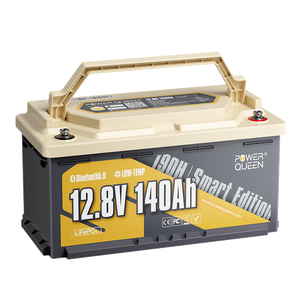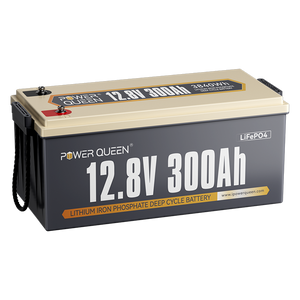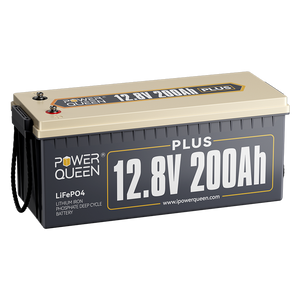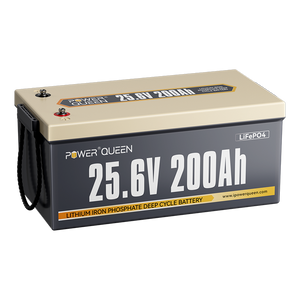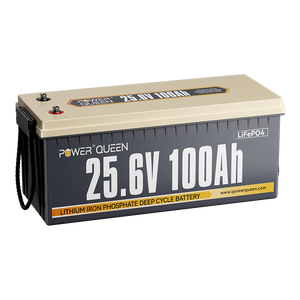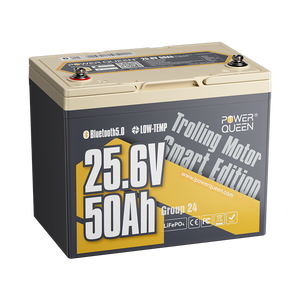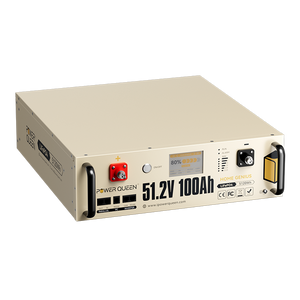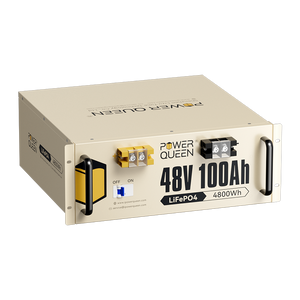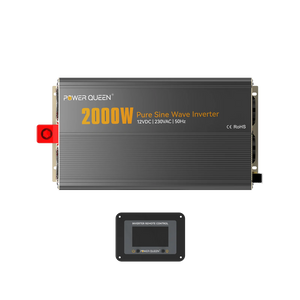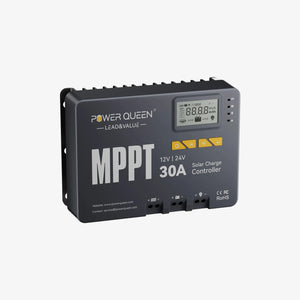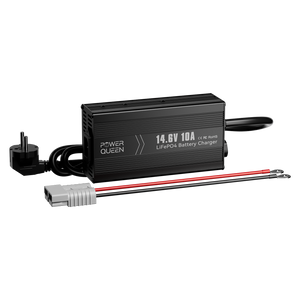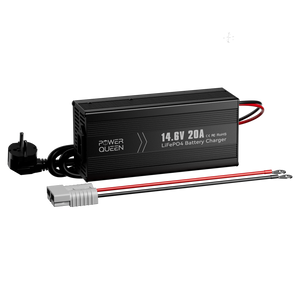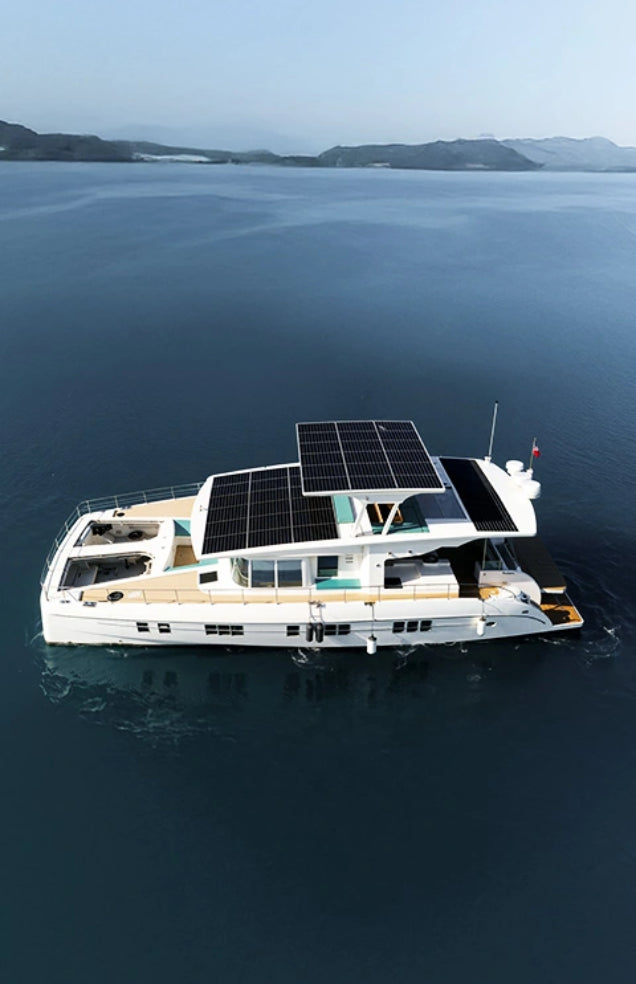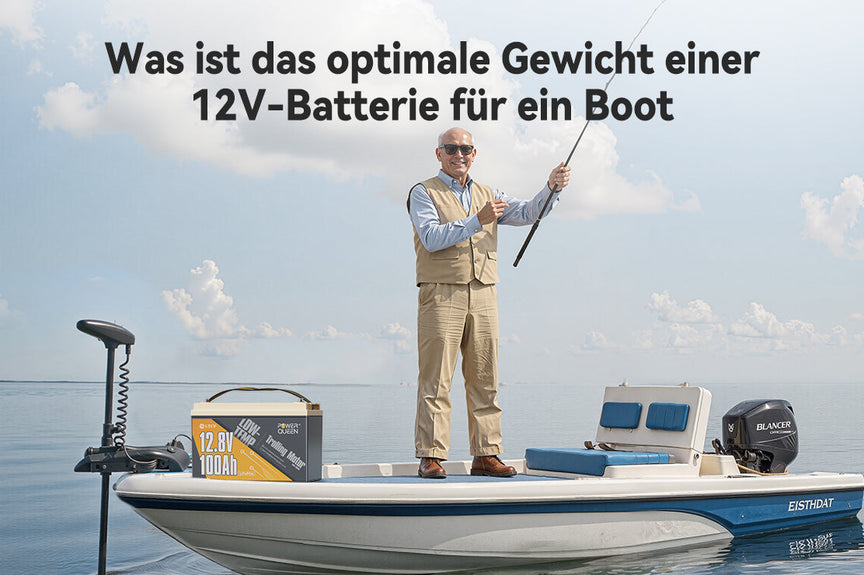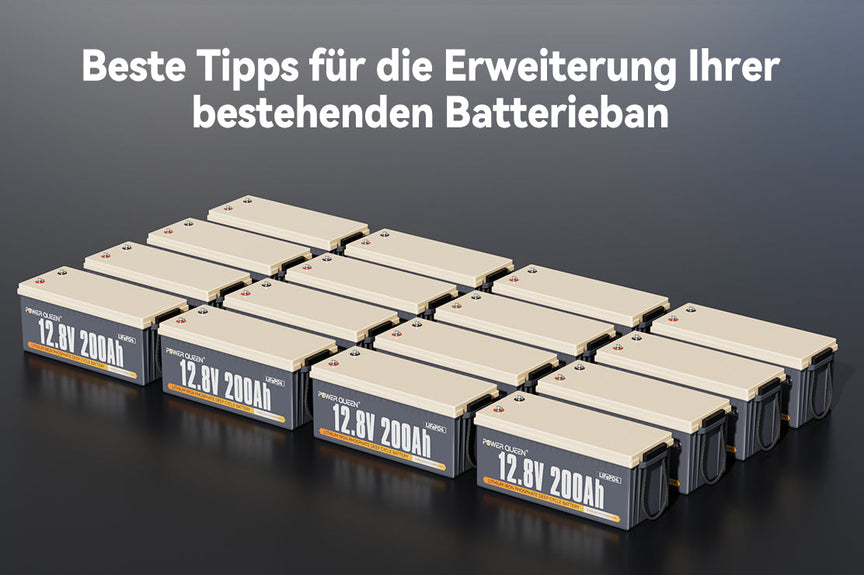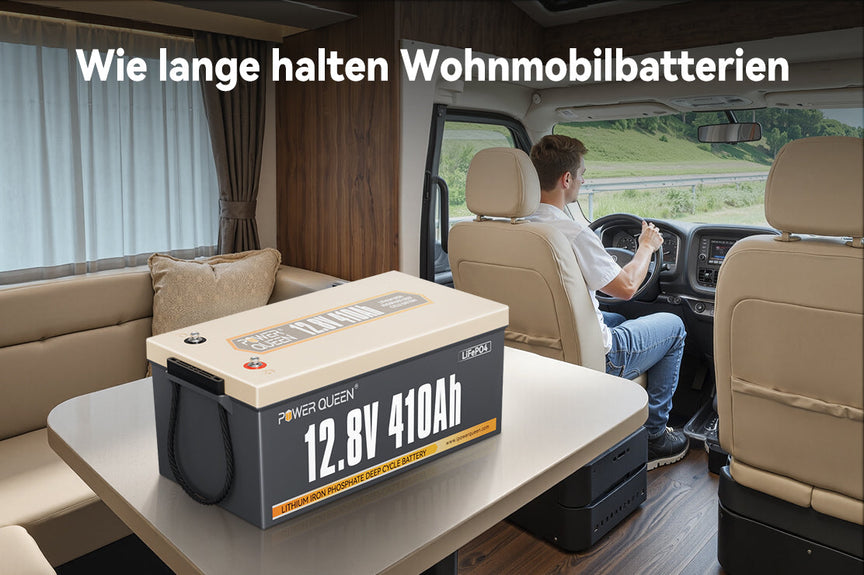Lead-acid battery vs. lithium-ion battery: What is the difference?
Lithium and lead-acid batteries are two of the most common deep-cycle battery types available today. But how do you know which battery is better suited for your boat, RV, solar system, or commercial use?
This article provides a clear comparison of lithium and lead-acid batteries. You will receive the information you need to decide which battery is best suited to your specific requirements.
Table of contents
Part 1. How lithium-ion and lead-acid batteries work
1.1 How lithium-ion batteries work
1.2 How lead-acid batteries work
Part 2. Lithium-ion battery vs. lead-acid battery
2.1 Price of lithium-ion batteries vs. lead-acid batteries
2.2 Lifespan of lead-acid batteries vs. lithium-ion batteries
2.3 Lithium-ion vs. lead-acid batteries in cold weather
2.4 Charger for lead-acid battery vs. lithium-ion battery
Part 3. Why lithium batteries are better
Part 4. Why should you choose the Power Queen lithium battery?
6.1 What is the difference between a lithium battery and a normal battery?
6.2 What is the advantage of a 12V lithium battery compared to a 12V lead-acid battery?
6.3 How long do 48-volt golf cart batteries last?
Part 1. How lithium-ion and lead-acid batteries work
When comparing battery technologies, it is important to understand how lithium-ion batteries and the operating principle of lead-acid batteries work. Both battery types store and release energy through electrochemical reactions, but their materials and processes differ significantly.
1.1 How lithium-ion batteries work
Lithium-ion batteries Batteries use electrochemical reactions to store and release energy. They consist of three main components: the anode (usually graphite), the cathode (often lithium metal oxide), and the electrolyte (a lithium salt solution). When you charge the battery, lithium ions migrate from the cathode to the anode. During discharge, the ions return to the cathode, powering your devices. This design allows for high energy density, meaning they provide a lot of energy in a small space.
1.2 How lead-acid batteries work
Lead-acid batteries consist of two main components: an anode made of spongy lead and a cathode made of lead dioxide. These plates are immersed in a mixture of sulfuric acid and water. During charging, an external power source drives an electric current through the battery, converting lead sulfate back into lead and lead dioxide. During discharging, a chemical reaction occurs between the lead plates and the sulfuric acid, producing lead sulfate and water, and simultaneously generating electrical energy.
In general, lithium-ion batteries are superior to lead-acid batteries due to their reliability and efficiency. However, for small, off-grid storage systems that are not used frequently, cheaper lead-acid batteries may be the better choice.
Part 2. Lithium-ion battery vs.lead-acid battery
| Features | Lithium-ion batteries | Lead-acid batteries |
| Operating temperature range | -4°F up to 140°F | 32°F up to 104°F |
| Lifespan (cycles) | 4000+ cycles | 500 cycles |
| Charging flexibility | Improved adaptability to charging rates | Stricter charging requirements |
| Cost | Higher initial costs | Lower initial costs |
| longevity | Robust and reliable | Less durable, more prone to damage |
| Charging method | Constant current and constant voltage charging | Constant charging voltage |
| Charging speed | Faster | Slower |
| Resting voltage | 12.8 volts (4 cells of 3.2 volts each) | 12 volts (6 cells of 2 volts each) |
| Risk of overloading | No, it prevents overloading | Yes, overloading is possible if the connection is too long. |
| Efficiency | More efficient | Less efficient |
| Maintenance charge | No trickle charge required | Does it require a maintenance charge after a full |
| maintenance | Requires special charger | Less specialized; more forgiving |
| Best Use Cases | Applications that require fast charging and safety | General applications |
2.1 Price of lithium-ion batteries vs. lead-acid batteries
Lithium-ion batteries differ significantly from lead-acid batteries in both price and overall value. Lithium-ion batteries have higher initial costs, with a typical system price of around €20,000 for a capacity of 50 kWh. While lead-acid batteries are cheaper initially, they need to be installed and replaced multiple times over the long term. Lithium-ion batteries cost approximately €0.15 per kWh of usable electricity, whereas lead-acid batteries cost €0.42 per kWh.
The total cost for the same usable capacity amounts to approximately €60,000. Taking installation and transport costs into account, the total cost for a lithium-ion system is approximately €23,000, while the lead-acid system costs €78,000.
In contrast, lithium-ion batteries are more durable than lead-acid batteries. The 12V lithium battery from Power Queen For example, it has higher energy efficiency and a longer lifespan, making it a good choice for motorhomes, boats and solar systems.
2.2 Lifespan of lead-acid batteries vs.Lithium-ion batteries
When comparing battery lifespans, lithium-ion batteries are significantly superior to lead-acid batteries. A battery's lifespan is measured in cycles, meaning how many times it can be discharged and recharged. Lead-acid batteries for RVs typically have a lifespan of a few hundred cycles, with most falling between 300 and 1,000 cycles. In contrast, lithium-ion batteries for RVs can withstand thousands of cycles, some even up to 5,000.
To illustrate the difference: Lead-acid batteries typically have a lifespan of 2 to 5 years, while lithium-ion batteries can last 10 years or longer.
Furthermore, lithium-ion batteries are more robust and withstand harsh conditions better than their lead-acid counterparts. They also maintain their efficiency for longer, typically operating at 95% efficiency compared to 80-85% for lead-acid batteries. This longer lifespan and higher efficiency make lithium-ion batteries an excellent choice for power supply.
2.3 Lithium-ion vs. lead-acid batteries in cold weather
When comparing lithium-ion and lead-acid batteries for use in cold weather, lithium-ion batteries perform best. They operate effectively at temperatures as low as -4°F and maintain 95-98% of their rated capacity, while lead-acid batteries struggle at temperatures below -32°F and their capacity drops to 70-80%. Lithium-ion batteries can also be charged in cold weather with appropriate precautions, whereas lead-acid batteries can only be charged to a very limited extent in cold conditions.
While lithium-ion batteries are more expensive initially, their longer lifespan, adaptability, and overall performance in cold conditions make them a better investment for long-term use. For applications such as off-grid systems, recreational vehicles, and cold climates, lithium-ion batteries—like the POWER QUEEN series—are the more reliable choice.

Read more about it: Why is cold protection important for lithium batteries?
2.4 Charger for lead-acid battery vs. lithium-ion battery
Lithium-ion battery chargers offer several key advantages over lead-acid chargers. Lithium chargers operate with both constant current and constant voltage, enabling faster and more efficient charging, whereas lead-acid chargers typically use a slower constant voltage method. Furthermore, lithium-ion chargers are designed to prevent overcharging, eliminating the need for the trickle charge often required after a full charge with lead-acid batteries.

Lithium-ion chargers require more specialized equipment, but they better preserve battery health and are ideal for applications where fast and reliable charging is essential. In contrast, lead-acid chargers are less efficient and more prone to overcharging if left connected for too long. For optimal battery performance and longevity, especially in modern applications, a lithium-ion charger is the superior choice.
Part 3. Why lithium batteries are better
Longer lifespan: Lithium batteries last much longer than lead-acid batteries. They can withstand thousands of charge and discharge cycles while maintaining a high capacity.
Higher efficiency: They can be charged faster and release their energy quickly when needed.This makes them ideal for high-demand applications.
More power: Despite their smaller size and lighter weight, lithium batteries are more powerful and deliver more energy in a smaller package.
Lower costs in the long term: Although lithium batteries are initially more expensive, their longer lifespan and better efficiency make them more cost-effective in the long run.
Maintenance-free: Unlike lead-acid batteries, which require regular maintenance, lithium batteries do not need water refilling or active maintenance, reducing hassle and costs.
Environmentally friendly: Lithium batteries have a lower environmental impact. They are recyclable, and their long lifespan reduces waste.
Stable performance: Lithium batteries also function at different temperatures and retain their charge for longer when not in use, making them reliable under many conditions.
By choosing lithium batteries, you are investing in a reliable, efficient and cost-effective energy source that outperforms conventional options such as lead-acid batteries.
In summary, choosing lithium batteries for your motorhome offers many advantages. With their longer lifespan, light weight, high energy density, and fast charging speed, lithium batteries are the perfect choice for motorhome owners. Take advantage of the benefits of lithium batteries and enhance your travel experience!
Part 4. Why should you choose the Power Queen lithium battery?
Power Queen lithium batteries outperform conventional lead-acid batteries with their longer lifespan and robust cycle life, making them ideal for demanding environments. They recharge quickly and efficiently deliver powerful energy, ensuring uninterrupted operation of equipment and machinery. Unlike lead-acid batteries, which require frequent maintenance, these batteries are cost-effective in the long run due to their durability and low maintenance requirements. Power Queen batteries are environmentally friendly, recyclable, and generate less waste due to their extended lifespan.
If you're considering purchasing your next battery, you should think about Power Queen lithium batteries. They offer the performance, efficiency, and reliability you need to meet your energy demands in today's demanding world, proving to be a smart investment for both the economy and the environment.
Part 5. Conclusion
In summary, lithium-ion batteries outperform lead-acid batteries in many ways. They have a longer lifespan, charge faster, and offer higher energy density. While their initial cost is higher, the long-term savings and efficiency make them a better investment. Whether for RVs, solar systems, or other applications, lithium batteries provide reliable power and enhance your overall experience.
Part 6. FAQ
6.1 What is the difference between a lithium battery and a normal battery?
Lithium batteries and standard batteries, such as alkaline batteries, differ significantly in their performance and lifespan. Lithium batteries can be up to five times more expensive than alkaline batteries, but they often last eight to ten times longer. This longer lifespan means fewer batteries need replacing, resulting in lower long-term costs.
Furthermore, lithium batteries maintain a stable voltage throughout their lifespan. In contrast, alkaline batteries gradually lose voltage as they discharge, resulting in reduced performance. This makes lithium batteries a more reliable choice for devices requiring consistent power. While the initial investment is higher, lithium batteries offer better efficiency and greater value in the long run.
6.2 What is the advantage of a 12V lithium battery compared to a 12V lead-acid battery?
12V lithium batteries offer several key advantages over 12V lead-acid batteries. First, lithium batteries have a much lower self-discharge rate, meaning they can retain up to 100% of their charge for over a year when fully charged. In contrast, lead-acid batteries can lose up to 30% of their capacity every month due to self-discharge.
Furthermore, lithium batteries are lighter and more compact, making them easier to install and transport. They also have a longer lifespan, often up to 10 years, while lead-acid batteries typically only last 3 to 5 years.
Finally, lithium batteries can be charged faster and are more efficient, so they deliver consistent power throughout their lifespan. Overall, these advantages make 12V lithium batteries a superior choice for many applications.
6.3 How long do 48V golf cart batteries last?
A typical 48-volt battery It lasts 5 to 7 years, depending on how well it is maintained. Regular charging, proper storage, and avoiding deep discharges are important to extend the battery's lifespan.
For longer-lasting performance, the Power Queen 48V lithium battery A great choice. It offers 4,000 to 15,000 charging cycles, giving it a lifespan of over 10 years with minimal maintenance. If you need efficient, fast-charging power for your golf cart, this battery is designed for exceptional longevity.
